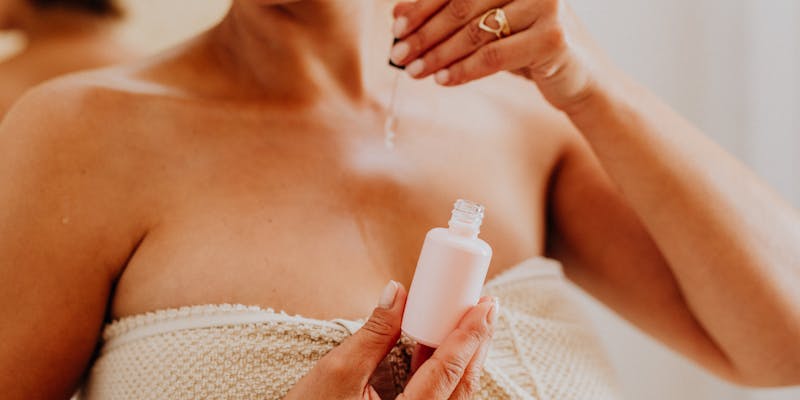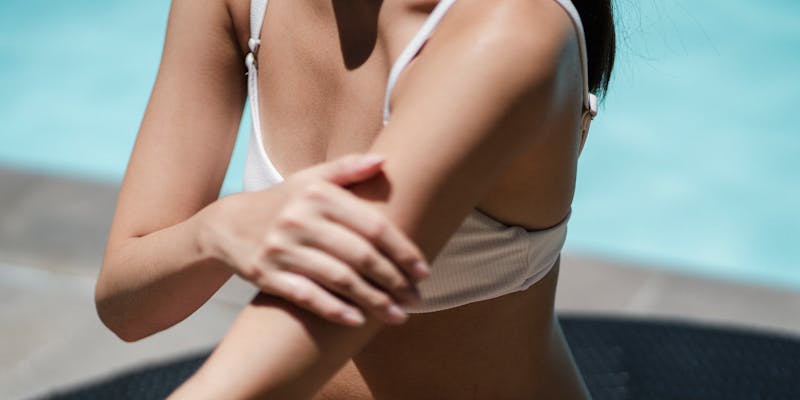Exploring the Reasons for Excessive Skin Oil: What You Need to Know
Mar 09, 2024 By Madison Evans
Do you want to say goodbye to constantly shiny skin and endless blotting sheets? If you find yourself battling greasy skin that seems to reappear just hours after cleansing, you're not alone.
Oily skin can be frustrating, but understanding its causes and implementing simple solutions can help you achieve a fresher, more balanced complexion. In this article, we'll explore the underlying reasons for oily skin and provide straightforward tips to help you reduce excess oil and minimize breakouts.
What Are the Major Causes of Excessive Oil Production?
The following is a list of typical causes of oil overproduction.
Genetics
Skin type is mostly determined by genetics, especially in the case of oily skin. You are very likely to have inherited oily skin if one or both of your parents do. Since sebaceous glands secrete too much oil when they are hyperactive, oily skin is typically inherited.
It's also possible that your genetic makeup determines the size of your pores, which can affect the production of sebum. More oil is often produced by larger pores, and differences in pore size can be seen both within and between ethnic groups.
Age Factor
Your skin changes significantly with age, and one of those changes is a reduction in sebum production. Although oily skin can linger, your skin's ability to generate oil tends to decrease with time. Essential proteins such as collagen are lost in aging skin, which in turn causes a decrease in sebaceous gland activity.
As a result of these alterations, many people with aged skin also experience dryness. Fine lines and wrinkles may appear more prominent due to the decrease in collagen and sebum production.
Wash Your Face Too Often
Excessive face washing, particularly for oily skin types, may seem like a sensible fix, but it might make the issue worse. When you overwash, too much oil is removed from your skin, which causes your pores to overproduce oil in order to make up for it.
This excess production may set off a vicious cycle of oiliness and possible skin problems. It is advised to wash your face twice a day, once in the morning and once at night, to preserve a balanced pH. If you notice that your skin becomes greasy during the day, use mild cleansing cloths to get rid of extra oil without upsetting the natural balance of your skin.

Overdoing Your Skincare
Overdoing your skincare regimen might be harmful, especially if you have oily skin. Although it would seem sensible to wash or exfoliate your skin frequently in order to address oiliness, over-cleansing might remove an excessive amount of natural oil from your skin.
Your sebaceous glands may go into overdrive in reaction and produce even more oil to make up for the loss. This may continue a vicious cycle of oiliness and possible skin problems.
Skipping the Use of Moisturizer
Eliminating moisturizer can worsen the issue rather than help it, especially if you have oily skin. Contrary to popular belief, moisturizers do not worsen oily skin; rather, they are necessary for all skin types, including oily skin, to stay hydrated and in a healthy balance.
If you neglect to apply a moisturizer, your skin could react by creating more oil to make up for the dehydration. Increased oiliness and possible breakouts may result from this vicious cycle.
How To Get Rid of Oily Skin?
Follow these steps to get rid of oily skin.
Easy Skin Care
The first line of defense against oily skin is to use a mild cleanser. Even though getting rid of extra oil is crucial, using harsh cleansers that damage the skin's natural moisture barrier might make it worse.
Choosing pH-balanced cleansers will help you achieve a thorough cleaning without over-drying or aggravating your skin. Seek formulations devoid of harsh compounds that aggravate oiliness and cause inflammation, such as sodium lauryl sulfate.
Balance Using Toners
Toners are essential for controlling the production of oil and constricting pores. They are available in many formulas, such as toners that are humectant, astringent, and exfoliating. Salicylic acid or alpha-hydroxy acid-containing exfoliating toners help in the removal of dead skin and the prevention of acne.
By removing moisture from the face, astringent toners constrict pores and may lessen oiliness, but if overused, they may also cause dryness. Since certain components may irritate skin or increase sensitivity to UV light, patch testing new products is crucial to preventing negative reactions.
Sun Protection
Sunscreen is an essential component of every skincare regimen, no matter the kind of skin, but it's especially important for oily skin. People who use retinoids or acid exfoliants as acne treatments should be extremely careful about protecting their skin from the sun.

Seek oil-free, non-comedogenic, broad-spectrum sunscreens with at least SPF 30. Daily use of sunscreen lowers the chance of sun damage, shields the skin from damaging UV rays, and delays the onset of hyperpigmentation and premature aging.
Blotting Papers for On-the-Go Oil Control
Blotting paper is a handy tool for controlling oil production during the day without compromising makeup application. These travel-friendly, absorbent paper sheets work well to minimize shine and eliminate oil, keeping the complexion looking clean and matte.
Instead of rubbing while using blotting sheets, softly massage the skin to prevent oil from spreading and possibly irritating it. Blotting paper is a must-have for people with oily skin since it provides discreet and speedy oil control when needed.
The Bottom Line!
In conclusion, dealing with oily skin requires understanding its complex causes and implementing a tailored action plan. This guide has everything you need to know to address each factor to achieve a clearer, more balanced complexion.
It's important to be patient and give your skincare routine time to work, as improvements may take several weeks to become noticeable. If oily skin persists despite your efforts, consulting a dermatologist might offer more advice and individualized treatment choices.







